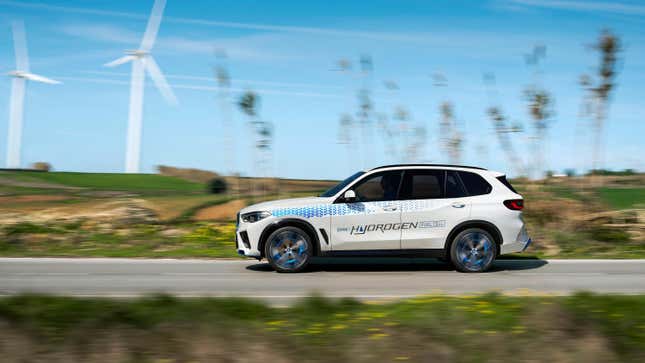
Hydrogen power is kind of unique in the world of alternative energy because it’s already reasonably mature. Fuel cells have been around for decades now, so it’s the infrastructure that’s keeping things from taking off rather than the technology. BMW doesn’t seem to care about that because, according to a report published on Wednesday by Automotive News, it’s started producing its own fuel cells.
Of course, there’s more to the story than that. BMW has been dabbling with fuel cell tech for a while and has, up until now, borrowed exclusively from its partner Toyota. These new BMW-built cells will depart from that format (though they’ll still have plenty of Toyota in them), and they will power 100 iX5 SUV development vehicles in Germany.
“Hydrogen will become more relevant in individual mobility due to its advantages,” said BMW CEO Oliver Zipse, in a statement. “Hydrogen-powered cars are the ideal technology for us to complement pure battery-electric vehicles.”
This initial run of fuel cell vehicles could presage a move toward mass-produced fuel cell vehicles for the Bavarian automaker, though we’d be surprised if they made their way to the US given our abysmal hydrogen filling network (read: if you’re outside of California, you’re basically out of luck).
Of course, BMW isn’t the only company getting in on the fuel cell fun. Bosch also announced that it would invest upwards of $200 million in fuel cell production in South Carolina. Production is supposed to kick off in 2026, and the investment is expected to create around 350 jobs.
Unlike BMW’s, these cells will end up in hydrogen-powered heavy trucks as the US pushes to cut those vehicles’ overall emissions footprint by as much as 60 percent by 2045.